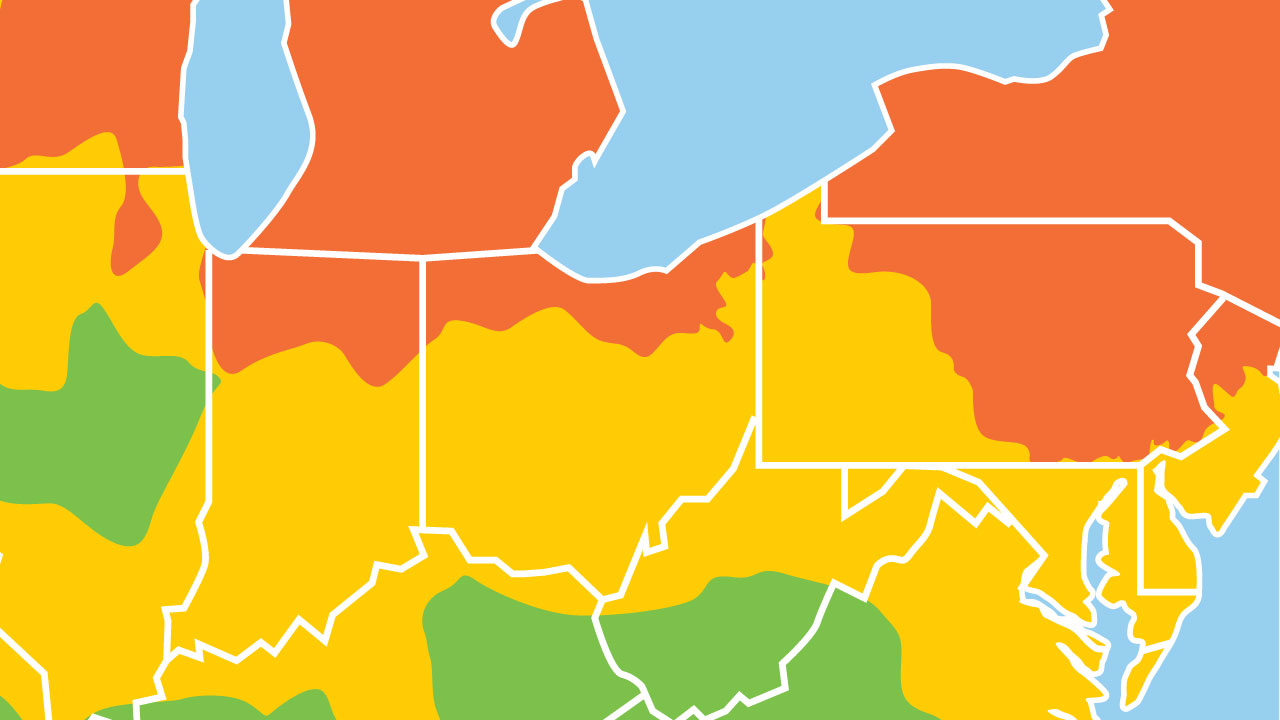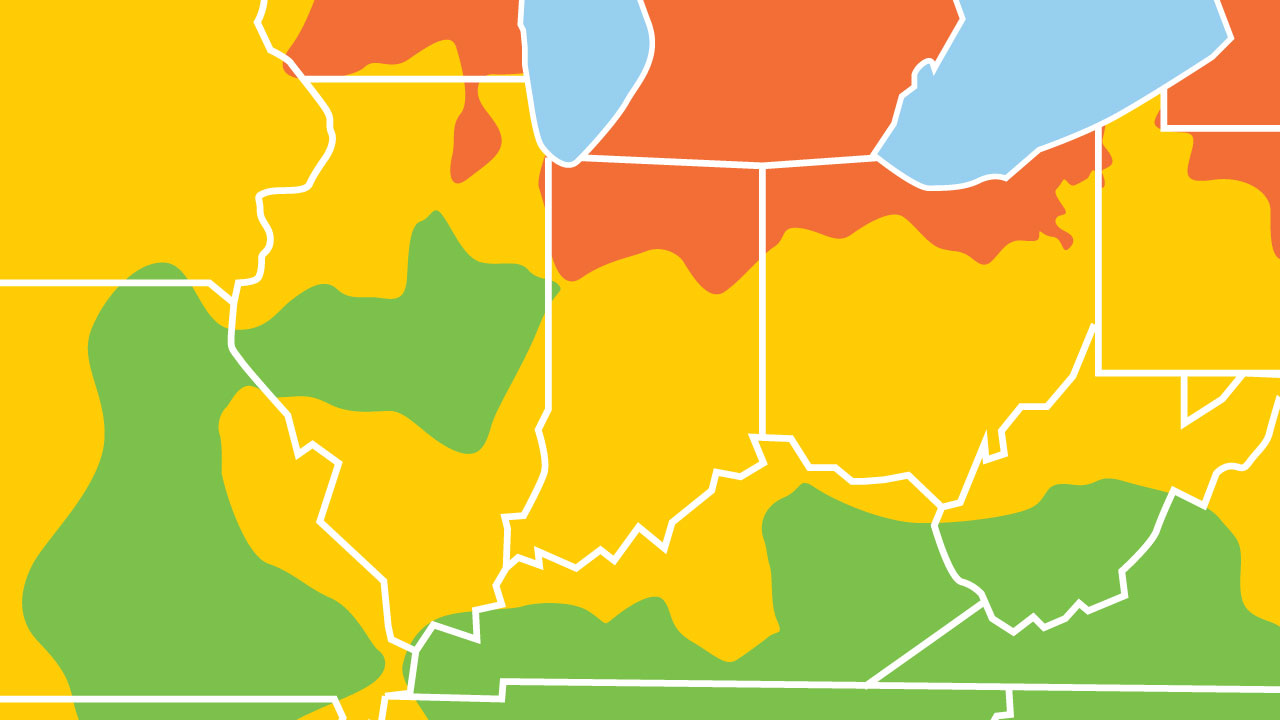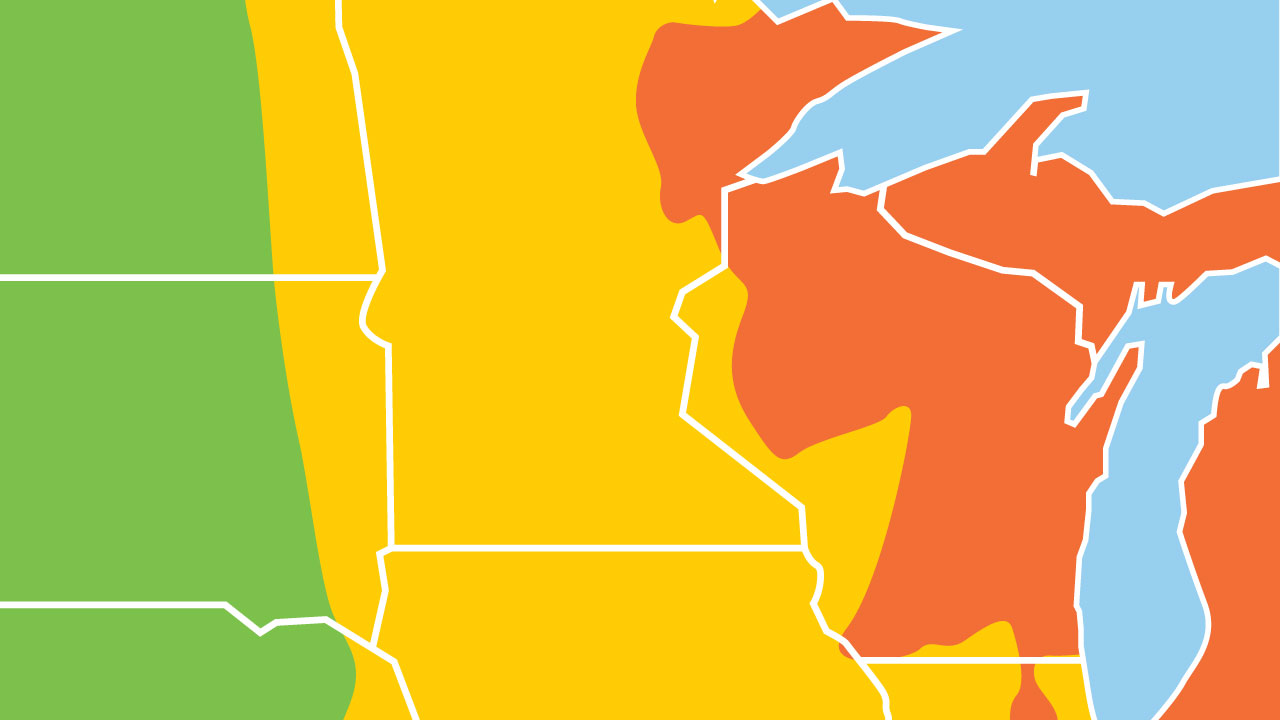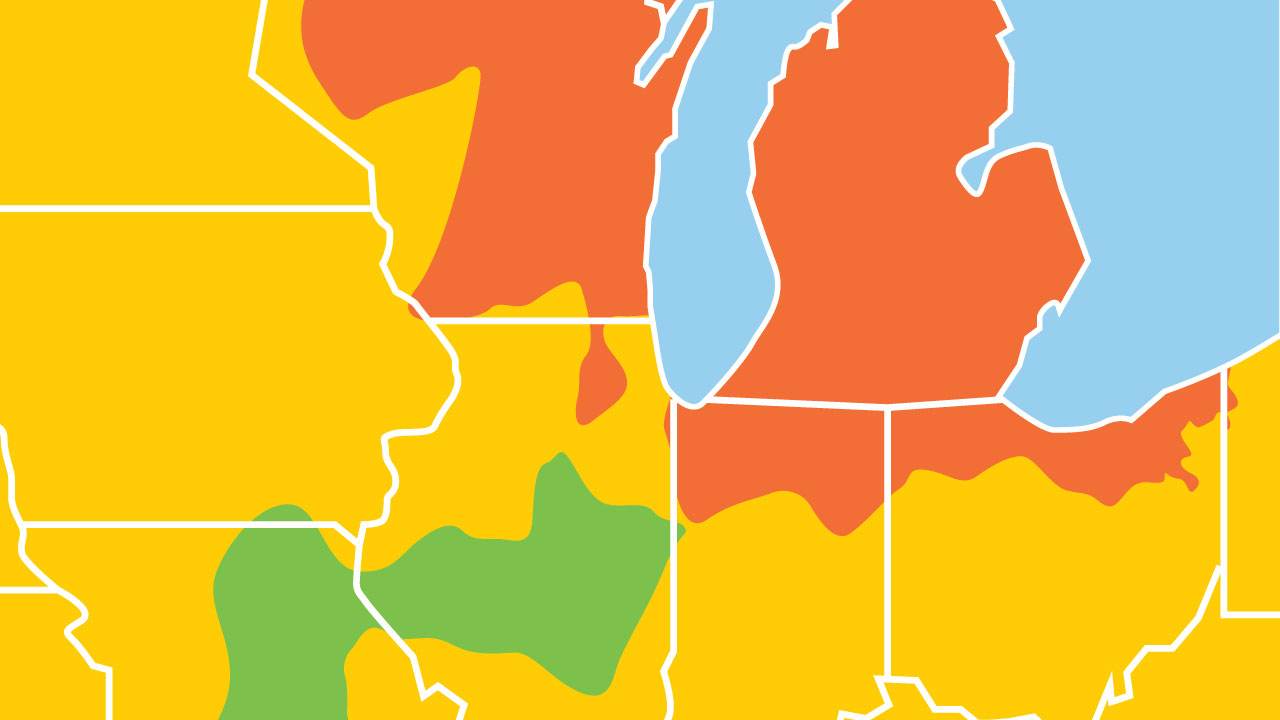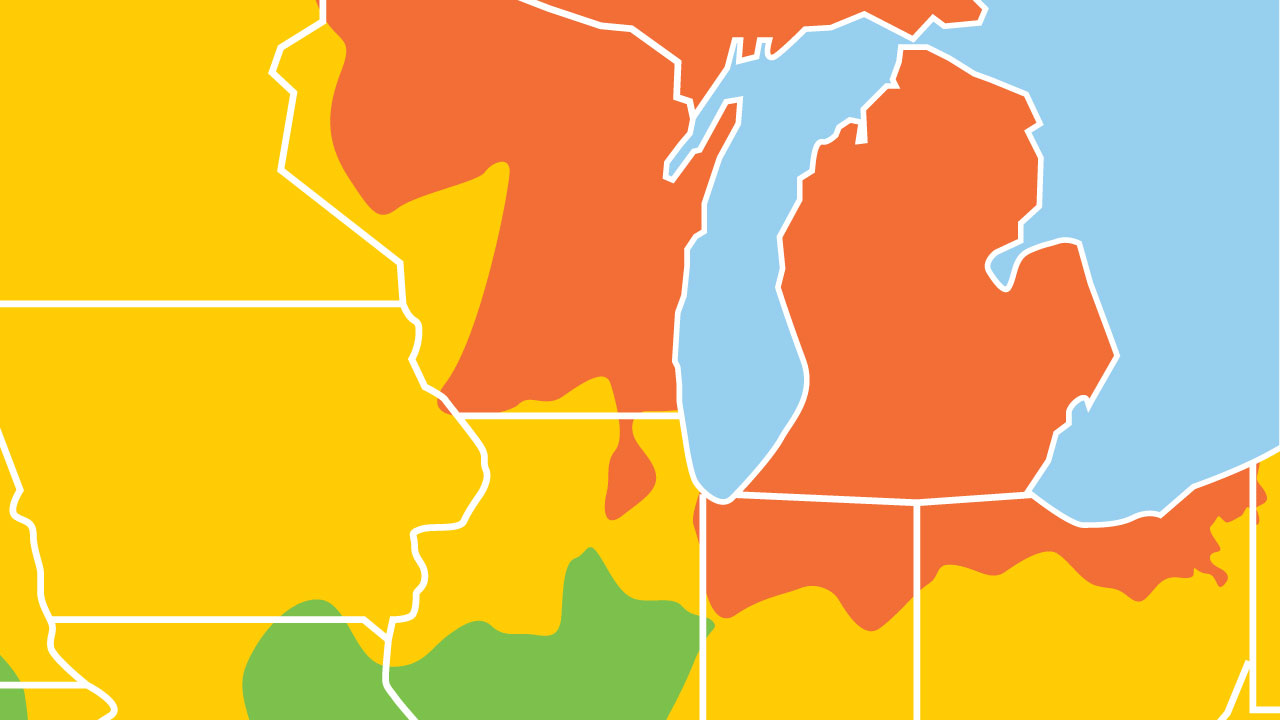Air Quality in Ohio: Why Your Nose Might Be Working Overtime This Week
Canadian wildfire smoke has pushed air quality in Ohio into unhealthy ranges, exposing residents to increases in sinus pressure and nasal congestion. ADVENT can help restore clear nasal breathing to better filter the air you breathe.
Air Quality Alerts in Indiana: What They Mean for Your Sinuses and Sleep
With wildfire smoke repeatedly triggering air quality alerts across Indiana, residents are feeling the strain on their sinuses, making healthy nasal airflow essential for relief and protection.
What Minnesota’s Smoky Summer Means for Your Sinuses, Sleep, and Breathing
Extended wildfire smoke in Minnesota is taking a toll on breathing and sleep, but targeted nasal care can help.
What Illinois’s Air Quality Crisis Means for Your Nose, Sinus, and Sleep
With wildfire smoke compounding existing pollution in Illinois, healthy nasal airflow is key to breathing easier.
Wildfire Smoke in Wisconsin: What It Means for Your Breathing, Sinuses, and Sleep
Wildfire smoke is pushing Wisconsin’s air quality to dangerous levels, making healthy nasal airflow essential for protection and relief.
Is Your Afternoon Nap a Sign of a Bigger Problem?
Afternoon naps can be refreshing, but needing lengthy shuteye every day may point to an underlying issue. Discover what’s causing your fatigue and how to address it.
A Mother and Son’s Escape from Chronic Sinus Infections
Chris and Collette spent years battling chronic sinus infections, cycling through temporary fixes that never solved the problem. With a procedure at ADVENT, they finally found lasting relief and a life free from constant congestion and exhaustion.
Breathe Easy Easton (Columbus)! ADVENT Opens Second Clinic in Columbus, Ohio
We're bringing our world-leading Airway-Breathing model of care to Easton (Columbus), Ohio. Meet our team and get details for the ribbon cutting.
ADVENT Expands to Dublin (Columbus), Ohio with New Clinic
We're bringing our world-leading Airway-Breathing model of care to Dublin (Columbus), Ohio. Meet our team and get details for the ribbon cutting.
How Balloon Sinuplasty Helped Rustyn Run Without Limits
Rustyn spent years struggling to breathe while running, never realizing his nasal blockage was holding him back. A simple in-office balloon sinuplasty helped unlock his full fitness potential.
Tired Again? Sleep Awareness Week is Your Wake-Up Call
You can’t sleep well if you can’t breathe well. This Sleep Awareness Week, take action to improve your breathing and wake up refreshed.
Jodi Had No Idea Her Sinuses Caused Jaw Pain
Sinus issues were causing Jodi’s jaw pain, fatigue, and anxiety—problems she never connected to her breathing. Discover how addressing the root cause with ADVENT’s simple in-office solutions changed her life.
What is an ENT doctor?
Learn what conditions an ENT can treat and what makes ADVENT's special.
Does Balloon Sinuplasty Hurt?
Balloon sinuplasty is a minimally invasive procedure that addresses chronic sinus blockages, but it’s not an instant fix. By understanding what to expect during and after the procedure, you can feel more confident and prepared for your journey toward breathing well.
Breathe Easy, Nashville! ADVENT Opens First Tennessee Clinic in Franklin
Our new Nashville (Franklin) clinic is opening with simple, in-office solutions for sinus and sleep issues.
What Does Mouth Tape Do?
Mouth taping may offer temporary relief for snoring and sleep issues by promoting nasal breathing, but it’s only safe and effective if your nasal airway is clear and healthy.
ADVENT Expands to Dayton (Miamisburg), Ohio
We're bringing our world-leading Airway-Breathing model of care to Dayton (Miamisburg), Ohio. Meet our team and get details for the ribbon cutting.
ADVENT Spreads Holiday Joy with United Way’s Giving Tree
This holiday season, ADVENT is proud to support United Way's Giving Tree program. See how our team made a difference and explore photos of the experience.
Why is Your Nose Stuffed Up and Runny?
Find out what's causing your stuffed and runny nose, learn how to get relief with at-home remedies, and explore treatment options for persisting symptoms.
ADVENT Comes to Madison
ADVENT, celebrating 20 years providing in-office solutions for treating nose and throat problems outside the operating room, expands to Madison, WI.
ADVENT Comes to Rockford
ADVENT, celebrating 20 years providing in-office solutions for treating nose and throat problems outside the operating room, expands to Rockford, IL.
Clearing the Airways - #4: Serving Patients
On this episode, our hosts discuss the genesis of @ADVENTknows and what it means to get results for the patients the organization serves.
Clearing the Airways - #3: Simple Solutions
On this episode, our hosts discuss the community that plays a critical role in fixing airway-breathing conditions and how patients can become more educated on this topic.
Clearing the Airways - #2: Airway-Breathing
We often don’t realize how bad a problem is until we fix it and as a result, notice the difference. This is typically the case for people who are mouth breathers or snore, it has been happening for so long, that it’s normal.
Clearing the Airways - #1: Best in Class Treatment
On this episode, our hosts discuss what ADVENT does for its patients, what treatment looks like, and their drive to deliver results.
The Hidden Link Between Your Nose and Workplace Productivity
If you're constantly battling fatigue, brain fog, and poor sleep quality, you might be one of the millions unknowingly suffering from airway-breathing issues - but there's hope for diagnosis and treatment beyond the typical solutions.
What is an Endoscopy Procedure & Why Do I Need One?
At ADVENT we do an endoscopy to diagnose and treat breathing issues, offering a quick path to better nasal health and sleep. Learn more...
The Future of Otolaryngology is in the Office
Dr. Kandula went on the BackTable ENT podcast to discuss the future of ENT.
ADVENT Comes to Plover
ADVENT, celebrating 20 years providing in-office solutions for treating nose and throat problems outside the operating room, debuts new medical office model in Plover, WI
ADVENT Comes to Joliet
ADVENT expands its treatment services in Chicagoland with new Joliet clinic.
ADVENT Comes to Indianapolis
New Facilities in Indianapolis (Keystone Crossing and Southport) and Avon, to Provide Groundbreaking, In-Office Solutions for Treating Nose and Throat Problems Outside the Operating Room
ADVENT Comes to Tinley Park
ADVENT expands its treatment services in Chicagoland with new Tinley Park clinic.
ADVENT Comes to Maple Grove
ADVENT expands its treatment services in the twin cities with new Maple Grove clinic, opening Monday, November 20.
Nose Open, Mouth Shut on The Morning Blend
If you are living with a constant stuffy nose and lack of energy, you’re not alone. 61% of adults are mouth breathers due to the inability to breathe freely. This is the story of Andy, an active dad who suffered from daily fatigue and headaches since childhood because of HOW he was breathing. ADVENT Physician Assistant, Kristen Duas, joins him.
Woodbury Grand Opening to Celebrate New Location in Twin Cities
Announcing the opening of our newest clinic in Woodbury, Minnesota. This is our 2nd clinic serving the Twin Cities and our 17th clinic in the Midwest. Learn More...
Breathing For Peak Performance on The Morning Blend
Kristen Dudas, Physician Assistant, and a triathlete, went on The Morning Blend to talk with Tiffany about how breathing impacts your athletic performance.
Sleep and Sinus Care Day in Oconomowoc - The Morning Blend
Take advantage of ADVENT Oconomowoc's complimentary 15-minute assessments on 9/21 for your sleep and sinus concerns.
Who’s More Tired of Your Snoring: You or Your Family?
What’s the one medical condition you can have that actually makes people mad at you? One that can cause tension, animosity and resentment? That's snoring...
CPAP Frustrations: One Size Fits None
If you suffer from the side effects of sleep apnea and you’ve sought treatment at a big-box healthcare facility or sleep center...
Anxiety & Sleep Apnea: Your Body & Brain At War
Sleep apnea doesn’t just disrupt sleep—it causes anxiety by forcing the body into a nightly fight for air. Understanding this connection and treating the root cause can break the cycle and restore restful sleep.
Does Drinking Alcohol Cause Snoring?
Most adults have experienced that sleep — the type of sleep that follows consuming too much alcohol. That type of sleep when your jaw goes slack and you...
Beating Sleep Apnea: Justin’s Story
Justin had no energy. He couldn't stay awake during the day, and was nodding off in the evenings. But this wasn’t the only sign of sleep apnea...
Why Sleep Apnea Hides From Death Certificates
This year alone, 655,000 American adults will die from heart disease....yet you will likely never see “sleep apnea” on a death certificate.
This Is How Sinister Sleep Apnea Is
There’s an invisible intruder in your bedroom. It’s evil and deceptive as it tightens a chilling grip around your neck. This intruder is sleep apnea...
Is Your Sleep Apnea a Ticking Time Bomb?
The ticking time bomb movie scenario isn’t far off from what’s happening inside your body if you’re living with undiagnosed sleep apnea.
A Sleep Struggle Story
I felt like I was waking up underwater. This is how Erik described his interrupted sleep, after struggling for more than six years with sleep apnea
The ADVENT Formula: Culture Meets Medical Care
Culture and medical care don’t normally go hand in hand. But when you really think about it, isn’t healthcare one place you’d hope has the best culture?
The Breathing Triangle®: ADVENT’S Exclusive Focus
Do you know which area of your body allows you to breathe? The lungs may seem like the obvious answer, but it’s the 3 areas that connect your airways.
A New Home Sleep Study Program Comes to ADVENT
As ADVENT Virtual Visits kicks off, we are going to be utilizing the at-home sleep study program, SleepView from CleveMed. Learn more about the new program!
Common Questions Answered by Real Patients
We asked ADVENT patients to answer some of the most common questions we get about procedures. Here’s what they had to say...
Do I Have COVID Or A Cold?
If you've lost your sense of smell or taste, you may be wondering if you have COVID or just a common cold. Here are some tips on what you can do next.
Celebrating ADVENT APPs During National PA Week
ADVENT is recognizing National Physician Assistant Week, October 6th – 12th, and we’re excited to celebrate our team of 20 Advanced Physician Assitants...
Put Up Your Dukes: Fight Snoring and Take Back Your Sleep
Dr. Kandula with ADVENT, talking about a cry for help that you likely are ignoring, which sounds kind of strange, but it happens all the time.
Top Doctors by Milwaukee Magazine
Milwaukee Magazine 2020 Top Doctors list was just released. Nominated by their peers this year were Dr. Ethan Handler and Dr. R. Nikolaus Schmidt of ADVENT.
At-Home Sleep Study Program
At ADVENT we utilize the at-home sleep study program, SleepView from CleveMed. Learn more about the new program!
Removing Barriers for New Patients on The Morning Blend
You’ve been self-diagnosing, living in the pharmacy aisle, or dismissed by dabbling doctors. Get the answers you deserve with no strings attached.
PODCAST | Getting to the Root of Breathing Issues
On A Whole New You podcast, Dr. Madan Kandula speaks about sleep apnea, allergies, The Breathing Triangle, oral posture, & why mouth breathing is hazardous.
ADVENT Comes to Oak Creek
ADVENT’S growth is a response to the demand for sinus and sleep relief. Here's our announcement of the expansion of our services in Oak Creek. Read more.
Symptoms, Causes & Getting Rid of Your Chronic Post-Nasal Drip
No matter how many times you cough or clear, you can’t seem to find relief for your postnasal drip. ADVENT explains what you can do to deal with it.
Putting an End To Sleep Divorce on The Morning Blend
When you or your partner snores, your relationship suffers. ADVENT founder, Madan Kandula, MD, discusses sleep divorce on TMJ4's The Morning Blend.
